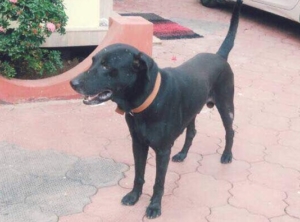All Ages are Stages of Life!
A touchy quote to start with, but don’t know who wrote this to give the due credit..
My four legged friend,
Of Fur and Paws
From whom I had to part
My loyal, kind and loving friend left
Paw Prints on my Heart
… Gone But Never Forgotten
Have you wondered why your dog walks slowly over a period of time, reluctant to climb stairs, not following your commands or not as jovial as he used to be.
Do not mistake these symptoms as his or her laziness or stubbornness!
Understand your dog is in transition from adult to senior.
7 years and above is considered as senior age this can vary from breed to breed for eg: Great Dane is considered elderly at 7 whereas miniature poodle doesn’t hit old age until about 10 or 11.
Dog years Vs human years

A 3 month old puppy is 5yrs old in human years (young child). 1yr old dog is a teenager of 15 yrs, and a 2yr old is 24. After that, aging slows, and 4 human years are added for every dog year. At 3 dog is 28,at 5 he is 36, at 15 he is 76.
As your dog ages there are a lot of changes happening to his body and mind just like humans when they become old. So, there is a need of change in diets, exercise routines, bedding and other management practices.
Diet
It is mandatory to understand that your pet cannot take all sorts of food in this age. So, there is a need of change in the diet in terms of both quantity and quality. Senior pets should be given low calorie diet as their energy requirements are quiet less. Food should contain good quality protein and less amount of fat. It would be best to divide the meals and feed them in four intervals which will help in better digestion. Provide a lot of water especially in summer.
Exercise
It will be very difficult to do the same regular exercise that he used to do, so slowly change the routine. Exercise routine should include slow to medium speed walking, avoid running. Give rests in between. Play fetch with him but make sure that you don’t stress him too much. If you notice any breathing problem while exercising, do not continue it. Make him relax and consult a veterinarian.
Dental care
Bad breath or halitosis is a common problem noticed especially in case of senior pets it is mainly because of the improper digestion, or accumulation of the plaques, over the years. Make sure you give your dog dental chews whenever required. It is also important to rule out any disease condition related to it. It is advisable to give syrups to improve their digestion as aging slows down their metabolism. Another precaution to be taken is that do not allow them to chew any hard objects as it can cause breakage of the tooth.
Diseases
Common diseases/conditions that pet owners should be aware are
Arthritis and degenerative joint disease: this condition will cause difficulty in movement, breakage of bones, painful joints, limping etc. To prevent these conditions, give supplements with calcium, glucosamine, and chondroitin.

Obesity: senior pets show high tendencies to put on weight, only a balanced diet and exercise routine can help this condition.
Heart, kidney, and liver diseases: senior pets are more prone to heart, kidney, and liver damage. So, to protect the liver give liver protectant syrups like Tefroli forte, Liv.52 etc. In cases if the pet has any heart condition make sure his diet contain no sodium. He should be given protein which is more digestible, giving high amount of indigestible protein can damage the kidneys. Consider fortifying his diet with fatty acids such as DHA and EPA.
Hypothyroidism: if you notice symptoms like exercise intolerance, weight gain, bilaterally symmetrical nonpruritic alopecia (i.e., patchy loss of hair which are identically found on both sides of the body, lesions will not be itchy), rat tail appearance of the tail, hyperpigmentations, then consult the veterinarian immediately.
Diabetes: the essential management of diabetes in dogs require daily routine that involve diet (preferably commercial diet), insulin administration, regular controlled exercise and nevertheless the understanding of the owner.
Tumors: no matter how healthy the patient is, he is likely to develop tumors in old age. If it is a benign tumor we can excise it but if it is malignant even if we excise it will recur and spread, moreover considering the age of the patient it is unlikely to save the life. All we can do is either give maximum comfort in the last days or euthanize (mercy killing) if the patient is in extreme pain.
Periodic visit to the veterinarian
As your pet becomes old it is mandatory that you take him for regular veterinary treatment which will ameliorate his discomfort.
Pet care program should include:
- General examination
- Complete blood count
- Blood chemistry profile
- Thyroid level
- Complete urinalysis
Old age is an unavoidable stage of life where you crave for attention, care, and time. Give your pet some time that is all they want in return from you.